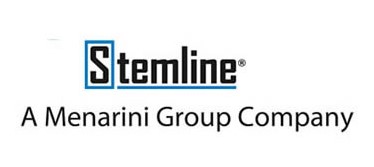Menarini Group Presented Initial Safety and Efficacy Data from Phase 1b/2 ELEVATE and ELECTRA Combination Studies of ORSERDU® (Elacestrant) in Patients with ER+, HER2- Metastatic Breast Cancer (mBC) at the 2023 San Antonio Breast Cancer Symposium


- ELEVATE and ELECTRA studies were designed with the objective to overcome different treatment resistance mechanisms and enhance patient outcomes with oral-oral combination options.
- A preliminary analysis of data in the phase 1b part of the ELEVATE trial demonstrates antitumor activity of the combination evaluating ORSERDU with inhibitors of the PI3K/AKT/mTOR pathway and CDK 4/6 inhibitors.
- Encouraging results from phase 1 ELECTRA, evaluating ORSERDU in combination with abemaciclib regardless of metastatic sites, show a tolerable and manageable safety profile with favorable preliminary efficacy.
FLORENCE, Italy and NEW YORK, December 11, 2023 – The Menarini Group (“Menarini”), a leading international pharmaceutical and diagnostics company, and Stemline Therapeutics, Inc. (“Stemline”), a wholly-owned subsidiary of the Menarini Group, focused on bringing transformational oncology treatments to cancer patients, presented results from phase 1b/2 ELEVATE and ELECTRA clinical studies evaluating ORSERDU® (elacestrant) in combination with other treatments. Both the ELEVATE and ELECTRA studies were designed with the objective to overcome different resistance mechanisms and enhance patient outcomes with combination treatment options. Data was presented at the 2023 San Antonio Breast Cancer Symposium (SABCS), December 5-9, 2023.
The ELEVATE study is evaluating elacestrant in combination with inhibitors of the PI3K/AKT/mTOR pathway (everolimus and alpelisib) and cell-cycle pathway inhibitors (palbociclib, ribociclib, and abemaciclib). Results reported at SABCS 2023 include all combination data from Cohort 1 of the phase 1b portion of the study, with the therapies showing predictable safety profiles that were consistent with prior studies. Additional cohorts are currently under evaluation to assess pharmacokinetics (PK) and determine the recommended phase 2 dose (RP2D) for each combination. The full abstract (1576517) can be viewed here.
“It is encouraging to see positive initial safety results in various combination studies of ORSERDU, along with promising preliminary efficacy data in these trials,” said Hope Rugo, MD, professor of medicine, Division of Hematology and Oncology at the University of California San Francisco Helen Diller Family Comprehensive Cancer Center. “We look forward to learning more about ORSERDU’s role in combination settings and its potential across the spectrum of metastatic breast cancer.”
The ELECTRA study is evaluating elacestrant in combination with abemaciclib. Phase 1b of this study will also determine the recommended phase 2 dose (RP2D) of this combination in patients regardless of metastases sites. Phase 2 will evaluate the benefit of the combination in patients with ER+/HER2- advanced or metastatic breast cancer with brain metastases since both compounds have demonstrated the ability to cross the blood-brain barrier. Results reported at SABCS 2023 include the three dose cohorts of the phase 1b portion of the study, showing a tolerable and manageable safety profile with favorable preliminary efficacy in these patients, regardless of the site of their metastases. The three cohorts have been completed with no patients experiencing dose limiting toxicities. No discontinuations have been observed for any patient beyond the observation period due to toxicity. Most common adverse events were diarrhea, nausea, and neutropenia/neutrophil count decreased. Only neutropenia was associated with grade 3 events with the combination; managed with standard dose reduction for abemaciclib. The full abstract (1576518) can be viewed here.
“People living with ER+ metastatic breast cancer are often faced with treatment resistance, causing a significant need for innovative new options,” said Elcin Barker Ergun, CEO of the Menarini Group. “While this data is preliminary, we are committed to advancing our comprehensive research on ORSERDU in combination with other treatments, to potentially help enhance patient outcomes, with the goal of extending and improving the lives of people with this disease.”
See here for details of the Menarini Group/Stemline Therapeutics' full range of presentations at SABCS.
About The Elacestrant Clinical Development Program
Elacestrant is also being investigated in several clinical trials in metastatic breast cancer disease, alone or in combination with other therapies. ELEVATE (NCT05563220) is a phase 1b/2 clinical trial that will evaluate the safety and efficacy of elacestrant combined with alpelisib, everolimus, palbociclib, abemaciclib, and ribociclib. ELECTRA (NCT05386108) is an open-label phase 1b/2, multicenter study evaluating elacestrant in combination with abemaciclib in patients with ER+, HER2- breast cancer. The phase 2 portion evaluates this treatment regimen in these patients with brain metastases. ELCIN (NCT05596409) is a phase 2 trial evaluating the efficacy of elacestrant in patients with estrogen receptor positive (ER+), human epidermal growth factor receptor-2 negative (HER2-) advanced/metastatic breast cancer who received one or two prior hormonal therapies and no prior cyclin-dependent kinase targeting enzymes CDK4 and CDK6 inhibitor (CDK4/6i) in the metastatic setting. Elacestrant is also being evaluated in early breast cancer disease.
About ORSERDU (elacestrant)
U.S. Indication: ORSERDU (elacestrant), 345 mg tablets, is indicated for the treatment of postmenopausal women or adult men with estrogen receptor (ER)-positive, human epidermal growth factor receptor 2 (HER2)-negative, ESR1-mutated advanced or metastatic breast cancer with disease progression following at least one line of endocrine therapy.
Full prescribing information for the U.S. can be found at www.orserdu.com.
Important Safety Information
Warning and Precautions
Dyslipidemia: Hypercholesterolemia and hypertriglyceridemia occurred in patients taking ORSERDU at an incidence of 30% and 27%, respectively. The incidence of Grade 3 and 4 hypercholesterolemia and hypertriglyceridemia were 0.9% and 2.2%, respectively. Monitor lipid profile prior to starting and periodically while taking ORSERDU.
Embryo-Fetal Toxicity: Based on findings in animals and its mechanism of action, ORSERDU can cause fetal harm when administered to a pregnant woman. Advise pregnant women and females of reproductive potential of the potential risk to a fetus. Advise females of reproductive potential to use effective contraception during treatment with ORSERDU and for 1 week after the last dose. Advise male patients with female partners of reproductive potential to use effective contraception during treatment with ORSERDU and for 1 week after the final dose.
Adverse Reactions
Serious adverse reactions occurred in 12% of patients who received ORSERDU. Serious adverse reactions in >1% of patients who received ORSERDU were musculoskeletal pain (1.7%) and nausea (1.3%). Fatal adverse reactions occurred in 1.7% of patients who received ORSERDU, including cardiac arrest, septic shock, diverticulitis, and unknown cause (one patient each).
The most common adverse reactions (>10%), including laboratory abnormalities, of ORSERDU were musculoskeletal pain (41%), nausea (35%), increased cholesterol (30%), increased AST (29%), increased triglycerides (27%), fatigue (26%), decreased hemoglobin (26%), vomiting (19%), increased ALT (17%), decreased sodium (16%), increased creatinine (16%), decreased appetite(15%), diarrhea(13%), headache (12%), constipation (12%), abdominal pain (11%), hot flush (11%), and dyspepsia (10%).
Drug interactions
Concomitant use with CYP3A4 Inducers and/or inhibitors: Avoid concomitant use of strong or moderate CYP3A4 inhibitors with ORSERDU. Avoid concomitant use of strong or moderate CYP3A4 inducers with ORSERDU.
Use in specific populations
Lactation: Advise lactating women to not breastfeed during treatment with ORSERDU and for 1 week after the last dose.
Hepatic Impairment: Avoid use of ORSERDU in patients with severe hepatic impairment (Child-Pugh C). Reduce the dose of ORSERDU in patients with moderate hepatic impairment (Child-Pugh B).
The safety and effectiveness of ORSERDU in pediatric patients have not been established.
To report SUSPECTED ADVERSE REACTIONS, contact Stemline Therapeutics, Inc. at 1-877-332-7961 or FDA at 1-800-FDA-1088 or www.fda.gov/medwatch.
About The Menarini Group
The Menarini Group is a leading international pharmaceutical and diagnostics company, with a turnover of over $4.4 billion and over 17,000 employees. Menarini is focused on therapeutic areas with high unmet needs with products for cardiology, oncology, pneumology, gastroenterology, infectious diseases, diabetology, inflammation, and analgesia. With 18 production sites and 9 Research and Development centers, Menarini’s products are available in 140 countries worldwide. For further information, please visit www.menarini.com.
About Stemline Therapeutics Inc.
Stemline Therapeutics, Inc. (“Stemline”) a wholly-owned subsidiary of the Menarini Group, is a commercial-stage biopharmaceutical company focused on the development and commercialization of novel oncology therapeutics. Stemline commercializes ORSERDU® (elacestrant) in the U.S. and Europe, an oral endocrine therapy indicated for the treatment of postmenopausal women or adult men with estrogen receptor (ER)-positive, human epidermal growth factor receptor 2 (HER2)-negative, ESR1-mutated advanced or metastatic breast cancer with disease progression following at least one line of endocrine therapy. Stemline also commercializes ELZONRIS® (tagraxofusp-erzs), a novel targeted treatment directed to CD123 for patients with blastic plasmacytoid dendritic cell neoplasm (BPDCN), an aggressive hematologic cancer, in the United States and Europe, which is the only approved treatment for BPDCN in the U.S. and E.U. to date. Stemline also commercializes NEXPOVIO® (selinexor) in Europe, an XPO1 inhibitor for multiple myeloma. Stemline also has an extensive clinical pipeline of small molecules and biologics in various stages of development for a host of solid and hematologic cancers.
Media Contacts
The Menarini Group
| Stemline Therapeutics, Inc.
|























